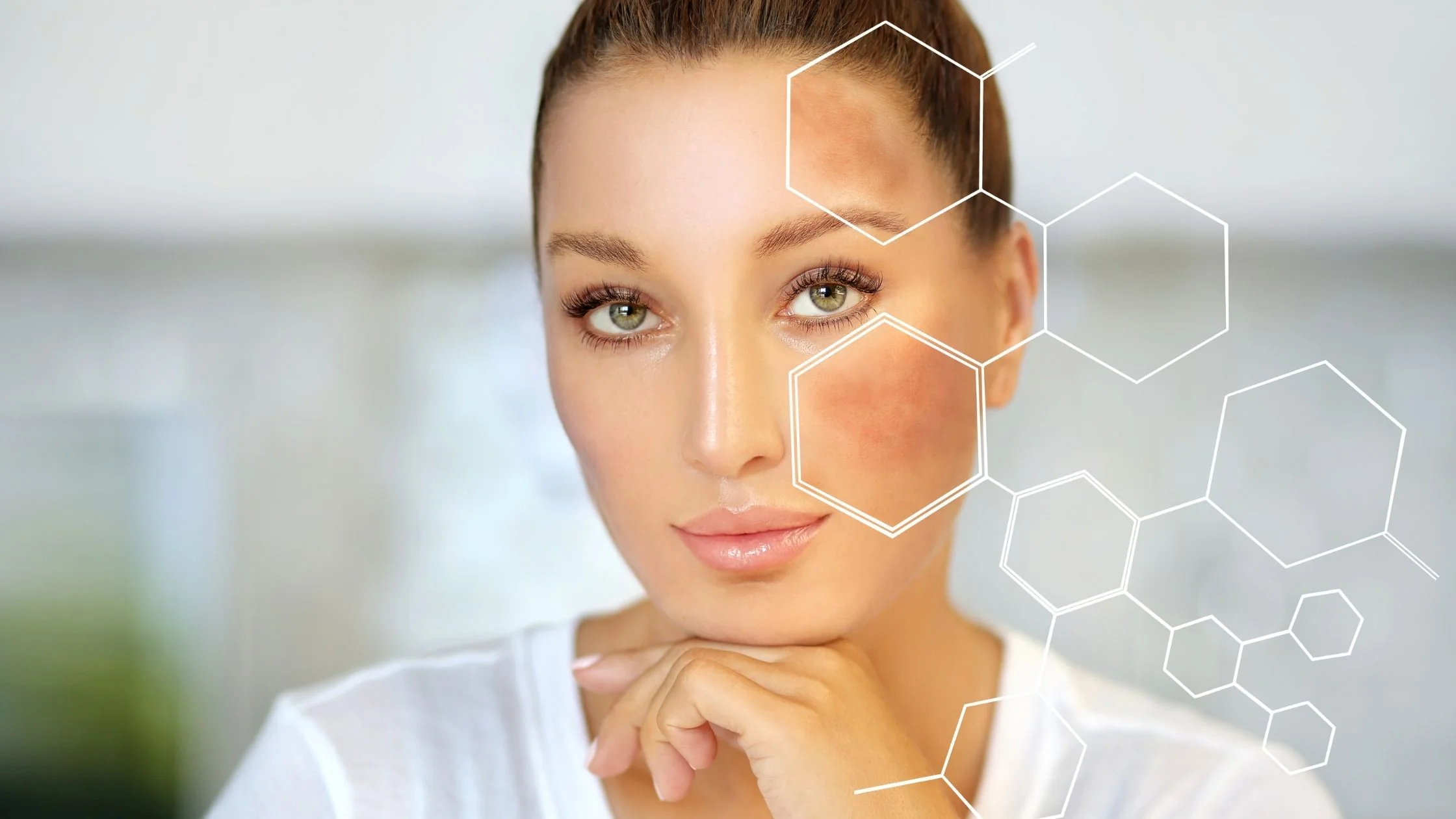
Skin discoloration can affect anyone, leading to uneven skin tone and potential self-esteem issues. Understanding the causes and treatments for skin discoloration is essential for maintaining healthy, radiant skin. Consulting the best dermatologist can provide valuable insights and effective solutions. This comprehensive guide explores the causes, treatments, and prevention of skin discoloration with expert advice from a dermatology centre.
Understanding Skin Discoloration
What is Skin Discoloration?
Skin discoloration refers to any change in the natural colour of your skin. It can manifest as dark or light patches, redness, or an overall uneven skin tone. This condition can be temporary or permanent and can occur due to various internal and external factors.
Common Causes of Skin Discoloration
Hyperpigmentation

Hyperpigmentation occurs when excess melanin forms deposits in the skin, causing dark spots or patches. Common types include:
-
Melasma: Often triggered by hormonal changes, melasma causes brown or grey-brown patches, typically on the face.
-
Sunspots: Also known as solar lentigines, these spots result from prolonged sun exposure and appear on sun-exposed areas like the face, hands, and arms.
-
Post-inflammatory Hyperpigmentation (PIH): This occurs after skin inflammation or injury, such as acne or eczema, leading to dark spots.
Hypopigmentation
Hypopigmentation is the loss of skin colour due to reduced melanin production. Common types include:
-
Vitiligo: An autoimmune condition where the immune system attacks melanin-producing cells, resulting in white patches on the skin.
-
Albinism: A genetic disorder characterised by a lack of melanin in the skin, hair, and eyes.
-
Pityriasis Alba: Common in children, this condition causes light patches on the face and other body parts.
Vascular Causes
Conditions affecting blood vessels can also cause skin discoloration, such as:
-
Rosacea: Chronic redness and visible blood vessels on the face.
-
Bruising: Trauma to the skin can cause discoloration due to broken blood vessels.
Other Factors
-
Medications: Some medications can cause skin discoloration as a side effect.
-
Genetics: Family history can play a role in skin discoloration.
-
Infections: Certain bacterial or fungal infections can lead to changes in skin colour.
Treatments for Skin Discoloration
Topical Treatments
Over-the-Counter Options
-
Hydroquinone: A skin-lightening agent used to treat hyperpigmentation. It works by inhibiting melanin production.
-
Retinoids: Vitamin A derivatives that promote cell turnover and reduce dark spots.
-
Vitamin C: An antioxidant that brightens the skin and reduces pigmentation.
Prescription Treatments
-
Corticosteroids: Used to reduce inflammation and treat conditions like melasma and PIH.
-
Calcineurin Inhibitors: Medications like tacrolimus and pimecrolimus can treat vitiligo and other inflammatory conditions.
Professional Treatments at a Dermatology Center
Chemical Peels
Chemical peels use acids to exfoliate the top layer of skin, promoting cell turnover and improving skin tone. They are effective for treating hyperpigmentation, melasma, and PIH.
Laser Therapy
Laser treatments target pigmented areas to break down excess melanin. This method is effective for treating sunspots, melasma, and other pigmentation issues. Different lasers are used based on the skin type and severity of discoloration.
Microdermabrasion
Microdermabrasion involves using a specialised device to exfoliate the skin’s surface, promoting new cell growth and improving skin texture. It is effective for treating mild hyperpigmentation and PIH.
Phototherapy
Phototherapy, or light therapy, uses UV light to treat conditions like vitiligo. It helps stimulate melanocyte activity and even out skin tone.
Prevention Tips from the Best Dermatologist
Sun Protection
-
Use Sunscreen: Apply a broad-spectrum sunscreen with at least SPF 30 daily, even on cloudy days.
-
Wear Protective Clothing: Hats, sunglasses, and long sleeves can protect your skin from UV rays.
-
Seek Shade: Avoid direct sun exposure during peak hours (10 a.m. to 4 p.m.).
Skincare Routine
-
Gentle Cleansing: Use a mild cleanser suitable for your skin type to avoid irritation.
-
Regular Exfoliation: Exfoliate regularly to remove dead skin cells and promote cell turnover. Avoid over-exfoliating, which can lead to irritation and hyperpigmentation.
-
Moisturising: Keep your skin hydrated with a suitable moisturiser to maintain its barrier function.
Healthy Lifestyle

-
Balanced Diet: Eat a diet rich in vitamins and antioxidants to support skin health.
-
Hydration: Drink plenty of water to keep your skin hydrated from within.
-
Stress Management: Practise stress-reducing activities like yoga, meditation, or exercise to maintain overall skin health.
Regular Dermatology Visits
Scheduling regular visits to a dermatology centre can help monitor your skin’s health and address any discoloration issues promptly. Professional advice and early intervention can prevent minor discolorations from becoming major concerns.
Common Myths About Skin Discoloration
Myth 1: Skin Discoloration Only Affects Darker Skin Tones
Skin discoloration can affect individuals of all skin tones. While some conditions may be more noticeable on darker skin, people with lighter skin can also experience issues like sunspots and redness.
Myth 2: Over-the-Counter Products Are Always Safe
Not all over-the-counter products are safe for everyone. Some ingredients can cause irritation or worsen discoloration if not used correctly. It’s essential to consult a dermatologist for personalised advice.
Myth 3: Home Remedies Are Effective for Treating Discoloration
While some home remedies may provide temporary relief, they are often not as effective as professional treatments. Ingredients like lemon juice can cause more harm than good by irritating the skin and increasing sensitivity to the sun.
Myth 4: Discoloration Will Disappear on Its Own
Some types of discoloration, like PIH, may fade over time, but others require treatment to improve. Ignoring discoloration can lead to persistent and worsening conditions. Seeking professional advice is crucial for effective treatment.
Myth 5: Sunscreen Is Only Necessary in Summer
Sunscreen should be worn year-round to protect against UV rays, which can penetrate clouds and windows. Consistent sun protection is key to preventing further discoloration.
Conclusion
Skin discoloration can be challenging to manage, but with the right approach and guidance from the best dermatologist, you can achieve a more even skin tone. Understanding the causes, treatments, and prevention strategies is essential for maintaining healthy, radiant skin. Regular visits to a dermatology centre and a tailored skincare routine can help you address discoloration effectively and prevent future occurrences.
Disclaimer
The information provided in this article is for educational purposes only and should not be considered as medical advice. Always consult with a certified dermatologist or healthcare provider before starting any new treatment for skin discoloration.
To learn more about dermatology centre for discoloration treatments, click on the link below: https://skinhairandyou.com/